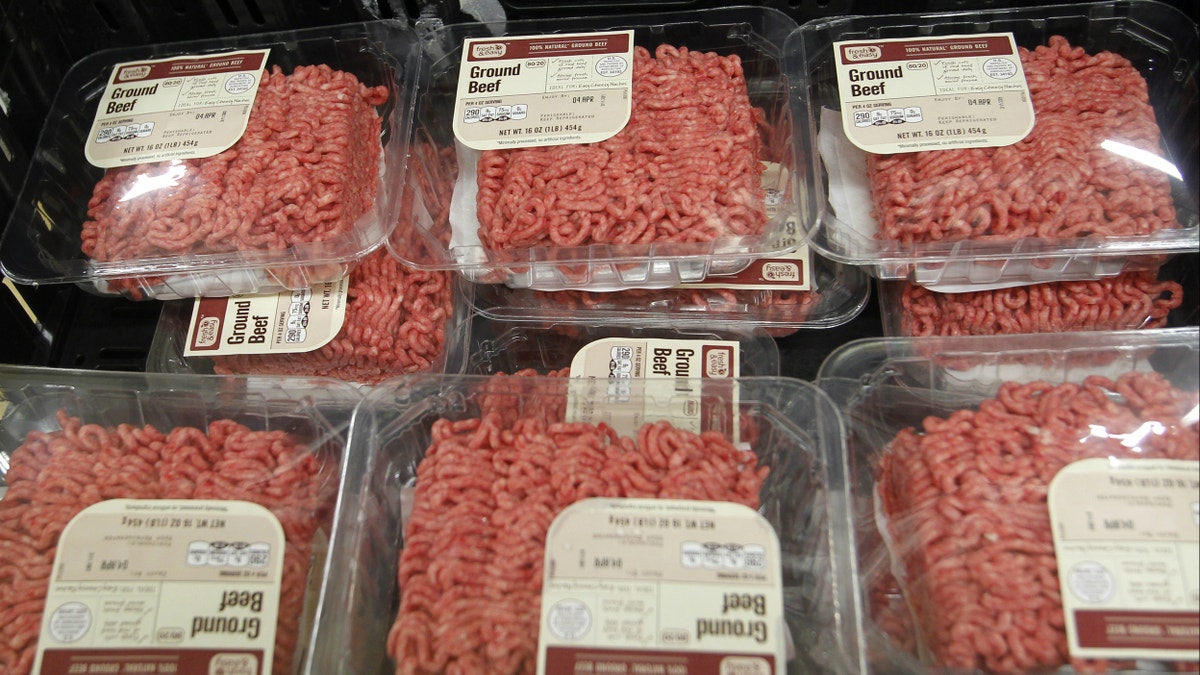
(REUTERS/Alex Gallardo)
This week’s massive recall of 1.8 million pounds of ground beef has consumers wondering if enough is enough. Is it finally time to change the way meat is raised, slaughtered and consumed in America?
Rich Goldstein, owner of the healthy cooking school Natural Epicurean Academy of Culinary Arts in Austin, Texas, thinks so.
“We're getting all too used to this out-of-control-broken-food-system recall,” said Goldstein, who holds a master’s in public health. “Unfortunately this sort of significant recall is all too common. As a society we must stop accepting that this is 'normal' and begin to make systemic changes.”
To make these changes, Goldstein thinks we first have to acknowledge what is broken. Here, in his words, are four things the public needs to know about factory farmed meat:
1) E. coli
How does something so dangerous to our health spread so fast? Slaughterhouses are such big operations now that they are processing massive amounts of cows at once. This means meat from one cow can easily cross contaminate other meat, and before you know it, you have almost a dozen people sick and almost 2 million pounds of ground beef in question.
E. coli outbreaks occur when meat is contaminated by bacteria at some stage during slaughter or packaging. The Centers for Disease Control and Prevention (CDC) explains on its website how food gets contaminated in the production process. While the most recent outbreak is still under investigation, this sort of outbreak is often the result of pathogens from slaughtered animals’ intestines contaminating the packaged product prior to shipping.
This contamination is increasingly common. In studies, close to 50 percent of beef samples have been tested positive for fecal matter. Contamination can occur through improper handling, contaminated water or any other action which allows fecal matter to mix with packaged products.
2) Antibiotics
Factory farms put antibiotics into their animals’ feed, so that they they’re less likely to get sick. But guess who ends up consuming those antibiotics in the long run? The consumer.
Why does this matter? Antibiotics used therapeutically have helped medicine tackle some difficult diseases. Each year humans ingest about 3 million pounds of antibiotics in their food.
However, for more than a decade we have been confronting the growing resistance to antibiotics, often as a result of over-prescription and overuse, both therapeutically and non-therapeutically. Shockingly, non-therapeutic use of antibiotics in factory farming is now in excess of 20 million pounds each year, often to mitigate any disease-causing conditions or simply to encourage rapid weight gain of livestock.
This excessive use of antibiotics is resulting in more aggressive strains of bacteria, which cause increased disease, raise health care costs and put us at risk for future epidemics.
3) Unnatural feed
Animals on factory farms are fed cheap by-products. This can include garbage, waste, you name it. So you, in turn, are also eating bits of these by-products.
Additionally, these animals’ main sources of food are unnatural for them. Traditionally, cattle grazed on grass, matured and gained weight slowly. But as feedlots came into existence, it became necessary to alter the cattle’s feed to grains, which have a number of other effects in addition to facilitating enormous weight gain.
This shift in diet causes a shift in the make-up of the microbes in the cattle's intestinal tract, making it more acidic. This encourages the growth of pathogenic E. coli and allows certain pathogens to survive in our guts that would previously not have survived.
4) Stress
Animals under stress end up producing meat that is actually lower in key vitamins. There have been quite a few studies showing the adverse effects from stress in animals during feedlot operations, and this stress results directly from the production process. Some studies have shown over 400 percent higher vitamin E content and 300 percent higher amount of omega-3s in grass-fed beef, compared to factory farmed meat.
So what does this all mean in the long run? As a society we must begin to aggressively address the costs of factory farming. In the meantime, as individuals we can make choices – such as eating more plant-based foods, buying organic as much as possible, or even growing your own meals.








































